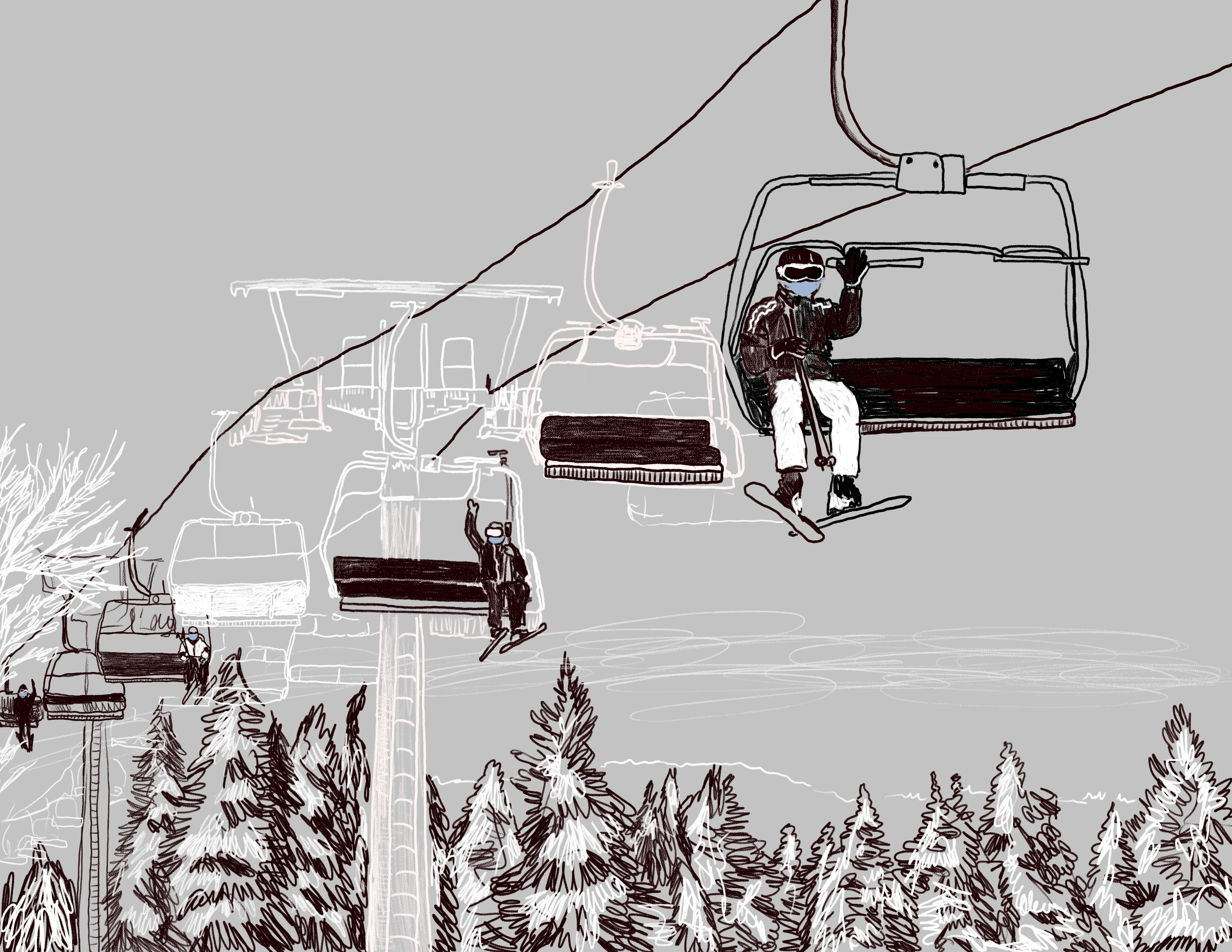An abnormal ski season around the corner
For winter sports enthusiasts, the first snowfall entails the beginning of a highly anticipated season. While there will be some sense of familiarity for experienced skiers, this season will be exceptionally unique with COVID-19.
Fortunately, winter athletes hoping to practice skiing as an escape from a disappointing year will still be able to access the wide plethora of local ski hills. However, with the pandemic upending familiar societal standards on its head, skiing will be no exception.
The concept of skiing lends itself well to the COVID-19 era: skiers are already accustomed to spreading out across the mountain, tend to distance themselves from others while riding the slopes to avoid collisions, and are used to covering their faces to combat the cold climate.
However, some issues arise when considering the services surrounding the popular winter activity. The concept of waiting in crowded lift lines and sharing chairs is worrisome for ski resorts, alongside the notion of renting gear and the interactions that procedure entails. The crowding and socializing that typically occurs in warm interior settings such as mid-mountain restaurants and chalets will also need to be heavily controlled and monitored.
The recent drop in temperature has enabled the snowmaking operation to begin for many ski resorts, officially signaling the commencement of the ski season despite the circumstances.
The Quebec Ski Areas Association (ASSQ) has released a set of guidelines that the non-profit organization deems paramount for the smooth sailing of ski operations in the province. Among the many safety measures people are advised to follow, the mandatory highlighted items include: keeping a physical distance of two metres, wearing a face covering inside and outside of base lodging, and washing hands frequently.
Much like the many societal services that have made the online transition, skiers can purchase ski tickets online in advance and learn about the specific regional health regulations that will vary by resort, which ski resorts strongly recommend before presenting oneself in-person.
Some mountains aim to control traffic by limiting the number of daily tickets made available. Regional statuses will not be absolute and will subsequently be susceptible to change as the COVID-19 situation evolves, meaning guests must frequent a business’ website regularly to remain informed and avoid calamity.
“The resorts have redoubled their efforts to put processes in place to ensure the safety of their guests and employees,” said President and CEO of the ASSQ Yves Juneau in a press release published on Nov. 26. “The success of the season also depends on the sense of responsibility of skiers who must now plan their outings in advance.”
In addition to the added physical safety measures, many ski resorts have adopted new policies that cater to customers by acknowledging the uncertainty surrounding the virus.
The Guaranteed Season option, for example, is offered by most local hills free-of-charge with the purchase of any season pass, enabling customers the option to defer the pass to the 2021-22 season or request a full refund. The deadline to defer varies by resort, and skiers cannot use the benefit if they have already started using their subscription.
Furthermore, if services are temporarily interrupted or suspended due to a government decree, a compensation process will occur at the end of the season. Reimbursements will be calculated according to the theoretical number of days offered by a certain pass compared to the number of operating days that the resort was forced to prematurely close.
The pandemic has thrown curveballs and haymakers at every stage, making its notorious presence felt and forcing people from all walks of life to adjust accordingly. While the different operation process will certainly have its ups and downs for ski enthusiasts, local ski resorts hope that the continuous diligence will result in a unique, safe, and rewarding winter season.
Graphic by Laura Douglas
